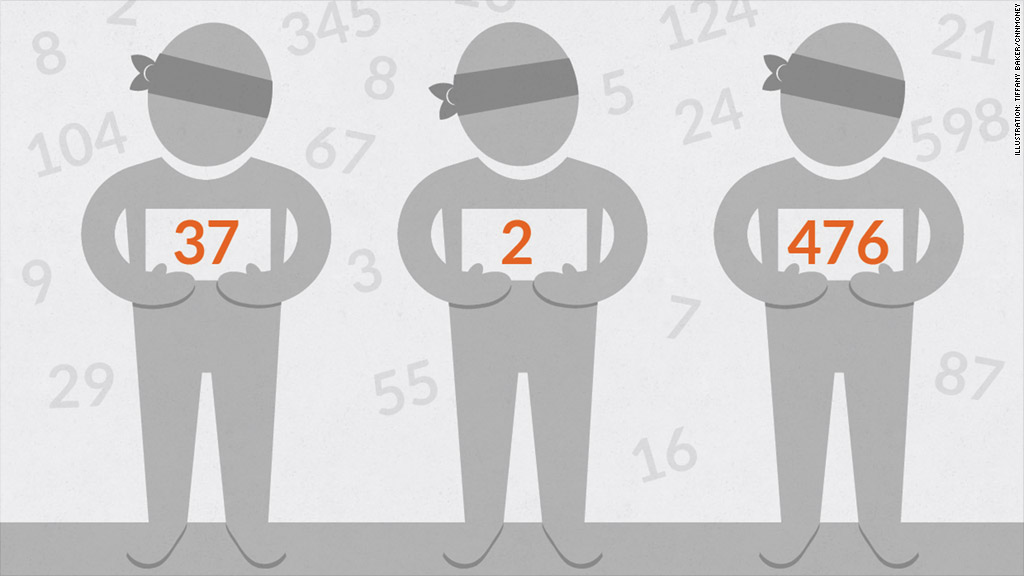
You likely know about your credit score -- that key measure that influences everything from your monthly car payment to your ability to buy a home. But there are dozens of other consumer scores that are impacting your daily life that you have no idea about.
Data brokers, analytics firms and retailers are creating hundreds of "secret" consumer scores that rank you on everything from the likelihood you will keep your job to how likely you are to commit fraud, according to a report released Wednesday by nonprofit World Privacy Forum.
Marketers, financial institutions, wireless phone service providers, law enforcement agencies and others use these scores to do everything from promoting new products to investigating crimes.
Yet, while these consumer scores are pervasive, most consumers don't know they exist. Rarely are they able to view their scores, find out how they are compiled or used or correct inaccuracies like they can on a credit report, the World Privacy Forum found.
"Consumers have little to no ability to learn when their lives are affected in a major or minor way by a consumer score that they never heard about," the report's authors Pam Dixon and Bob Gellman wrote. The two are calling for more transparency and government scrutiny of consumer scores.
Related: Data brokers selling lists of rape victims, AIDS patients
Dixon and Gellman acknowledge that some scores could be used to help consumers, by providing them with targeted deals and discounts, for example. But they say some scores infringe on a consumer's privacy and can affect their eligibility for everything from a new job to affordable insurance. Inaccuracies could also cause a consumer to be mislabeled as a fraudster and shut out of important lines of credit.
"Whether a consumer receives a coupon for a free soda is not a big deal," they wrote. "Whether a consumer can complete a transaction is of significant consequence."
Here are just a few of the hundreds of scores that the World Privacy Forum uncovered:
Consumer profitability score: Using factors like your income, one company sells a score which predicts how likely you will be to pay your debts. The higher your score, the more likely you are to be a "profitable" customer (and a target of marketers).
Churn score: Many companies, such as wireless carriers and cable companies, create scores that predict how likely you are to take your business to a competitor. Get deemed a flight risk, and you may be offered a better deal. On the flip side, get labeled a stable customer and you may end up paying higher rates.
Related: What your zip code reveals about you
Job security score: One company sells a score that uses employment and unemployment data, economic trends and forecasts to predict the probability that you will lose your job, and as a result not be able to pay your bills.
Banks sometimes use these lists in order to limit their losses, according to the report.
Medication adherence score: Do you always follow your doctor's orders? Or do you skip a pill here and there? One firm sells a score that predicts the likelihood you will follow a prescription plan, based on factors ranging from age to home ownership, that is designed to let pharmacies and insurers know when a patient is at risk and needs a medication reminder.

As long as the score does not use your own protected health information, it would not be protected by privacy laws.
Fraud scores: Widely used by retailers, credit card issuers and other companies, fraud scores indicate whether a consumer may be posing as someone else or attempting to perpetuate a fraud of some sort.
Related: What information is the government buying about you?
While the scores are an important fraud and loss prevention tool, they can also create major headaches for any consumer who gets incorrectly labeled or is a victim of identity theft.
Get branded as a high risk and you could be declined on credit card purchases or rejected on loan applications, among other things. And unlike a credit score, you typically have few rights to access or contest a fraud score.
Custom scores: Some retailers create their own custom scores using sophisticated analysis of their massive databases of customer purchases and demographic information. The most famous example: Target's pregnancy predictor score, which used a consumer's shopping history to predict that she was pregnant even before she had told family members.
Law enforcement scores: A variety of government scores are used for safety, anti-terrorism and other law enforcement purposes, but very little is known about how this information is used, the report stated.
